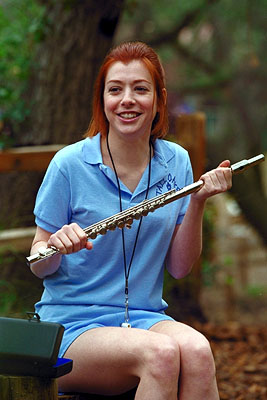How many times have we heard in Court the following from an expert:
Based upon my training, knowledge and experience, (insert alleged expert opinion)
It is perhaps the functional equivalent of the famous line in the American Pie movies (and has about the same value-a comedic line with little universal applicability to you and I) “THIS ONE TIME AT BAND CAMP…..(insert expert opinion)”

Anecdotal information can be the least reliable information and should not be allowed in the Courtroom at all.
Generally, anecdotal information is based upon personal observation and may be incorrect in its conclusion that one draws from it. Even a series of repeated anecdotal observations is not the proper substitute for correctly obtained scientific data based upon a controlled experiment.
All we need to do is think about it.

If we flip a coin only once and it comes up heads, we cannot validly conclude that whenever a coin is flipped it will come up heads despite the fact that there is the other side of the coin. This is an anecdotal conclusion.
Even if we (meaning literally you and I and even independently and totally separately from one another) flip the exact same coin 100 times and every time it comes up heads, then while one may conclude from this anecdotal observation the same as our one flip example, it does not make it a valid conclusion. What we did in these two examples is generalize from a specific case or series of cases to everyone or every time everywhere to the exclusion of all other reasons or conclusions.
The particular danger of anecdotal derived conclusions is that it is arbitrary in nature. In other words, it may be right or it may be wrong. It may even be the right conclusion to draw from that one time or even the multiple occurrences, but it is this generalization to try to explain every time everywhere to the exclusion of all other possibilities that the fallacy of anecdotal information is revealed. The hallmark or keystone of this problem is the insufficient amount of meaningful data and what data does exist is not obtained under a controlled environment.
These ideas are not new. It traces all the way back to ancient Roman times. It was referred to in epistemology as post hoc ergo propter hoc. Loosely it is translated as “It happened after therefore it was caused by”.
Barry Beyerstein perhaps explained it the best when he wrote, “anecdotal evidence leads us to conclusions that we wish to be true, not conclusions that actually are true.” So anecdotes can be worse than worthless, they can be misleading.
Anecdotal evidence is unreliable because it depends upon the accurate perception of the witness(es), often in a situation where the event was unexpected or unusual; it is dependent upon subjective memory, which has been overwhelmingly demonstrated to be extremely error prone and subject to a host of flaws; and it cannot account for the random vagaries of a chaotic world.
The inability of forensic scientists is acknowledge this is catastrophic and perhaps systemic. It may be do to the large scale lack of credentialed scientists in forensic science today. It must be acknowledged that one’s own experiences are anecdotal too (or maybe the appropriate phrase is “especially anecdotal”). The scientist/observer must understand that these observations just seem more compelling because he/she experienced them. One of the hardest things for even a seasoned and well-meaning scientist to do is to have a proper suspicion of and perspective on their own anecdotal experience. This is where many pseudoscientists and even credentialed scientists fail.
Motions in Limine should be filed by either the prosecution or the defense to preclude the use of anecdotal information in Court and the phrase of “based upon my training, knowledge and experience…” and henceforth should be removed from modern court. Verified and validated science should be the only measure of science that should be used in Court today.



physician assistant says:
This is such a great resource that you are providing and you give it away for free. I enjoy seeing websites that understand the value of providing a prime resource for free. I truly loved reading your post. Thanks!
J. Lee says:
I couldnt agree with you more. Not really science related, but this type of crap is the way the Oklahoma Highway Patrol operates. They always say “based on my training and experience…..” The worst part about it is that once they say that ANYTHING that comes after it is a presumed fact that can rarely be rebutted. Its absolutely ridiculous the number of Judges that take it as gospel. When pressed on their training it is usually just another Trooper that told them that was the way it was; NOT any trained professional. We really see this most with body language junk they rely on. “the defendant subconsciously covered his face with his left hand.” is one example of a gem Ive heard. Its even worse in Forensic Science because the witnesses there are usually untouchable because of an uninformed and ignorant defense bar.
Justin J. McShane says:
How true. What I usually do now a days is to use the Toyota recall as an example. Just because you do something a lot, doesn’t mean that it is done correctly. Think about it, Toyota has arguably the best mechanized process of production in the world with a lot of automation. They literally spend many millions of dollars a year on quality control and quality assurance. They have highly trained engineers and process mechanics perhaps better than that at NASA. Yet, 9.5 million times, despite all of their safeguards and all of the best intentions, they still did it wrong. Simply repeating a process or trying to repeat a process doesn’t make it right as we can clearly see.